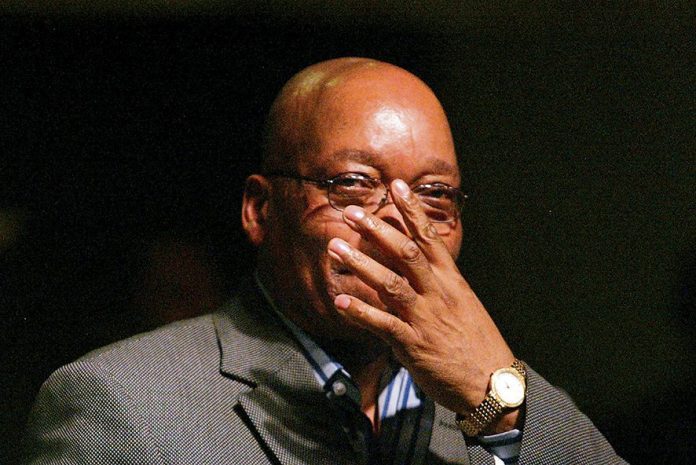Former president Jacob Zuma is a free man following a decision by the acting Correctional Services commissioner Makgothi Thobakgale.
Thobakgale kept the nation on tenterhooks throughout the whole of Thursday, the day he had announced as the deadline for the decision on Zuma’s fate.
By midnight, the announcement was postponed to Friday morning.
And when the decision was finally announced on Friday morning, Thobakgale said Zuma was brought in at the Estcourt Correctional Services Centre at about 6am and processed.
He said all administrative processes were complied with in terms of the Supreme Court of Appeals decision that Zuma should go back to jail and finish his term.
However, said Thobakgale, the Department of Correctional Services decided that Zuma, as a low-risk offender, qualified for a special remission to be released on the grounds of overcrowding in correctional facilities.
Justice and Correctional Services Minister Ronald Lamola said a total of 9 488 inmates, including Zuma, benefitted from the special remission.
“The remission of sentences is a crucial aspect of our justice system, and section 84[2][J] of the constitution enables it,” said Lamola.
However, he said, it was important to note that certain offenders, such as those convicted of sexual offences, tampering with essential infrastructure, serving life sentences, and being declared dangerous criminals, were excluded from the criterion of special remission.
Despite this, low-risk offenders in these categories may still be eligible for a 12-month remission, said Lamola.
“Offenders convicted of non-violent and non-sexual crimes will be eligible for up to 24 months of remission after completing the pre-release programme and risk assessment and providing fingerprints and DNA samples for comparison to the SA Police Service database.”
Thobakgale’s decision comes after the Constitutional Court in July dismissed an appeal to the ruling that Zuma’s release from prison on medical parole was unlawful.
The Department of Correctional Services had applied to appeal the Supreme Court of Appeal ruling.
Consequently, the final decision on Zuma’s early release from prison went back to Thobakgale’s desk.
On July 19, Zuma made a submission to confirm the decision of the commissioner that he had indeed served the full term of his incarceration.
He argued that he had served the full 15-month sentence as of October 2022.
According to the JG Zuma Foundation, Zuma was under Correctional Services’ control from July 8 2021 to October 7 2022, as per the Constitutional Court’s order.
The apex court issued the imprisonment order against Zuma after he refused to testify before the State Capture Commission of Inquiry.
Zuma had demanded that the commission chairperson, Chief Justice Raymond Zondo, recuse himself before he could testify, but Zondo dismissed the plea.
Following his incarceration, unrest erupted in parts of Gauteng and KwaZulu-Natal, during which mobs looted shopping malls.
Lamola said the special remission would alleviate overcrowding in correctional centres by releasing about 9 488 inmates and a further 15 000 inmates who are currently under correctional supervision and parole.
“The majority of the beneficiaries of this decision are already serving parole or under correctional supervision in their communities,” he said.
He said the exercise of exploring special remission commenced on April 24 “when we lost approximately 1 112 bed space due to delapidation in most of our centres”.
“To ensure that this decision is implemented effectively, a joint technical task team comprising justice, crime prevention and security cluster departments will oversee the process over 10 months, with the Department of Home Affairs leading the aspect of foreign nationals.
“It’s important to note that victims will be allowed to make representations during the offenders’ considerations for placement,” he said.
Follow @SundayWorldZA on Twitter and @sundayworldza on Instagram, or like our Facebook Page, Sunday World, by clicking here for the latest breaking news in South Africa.



